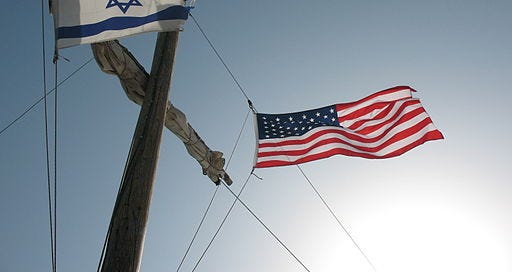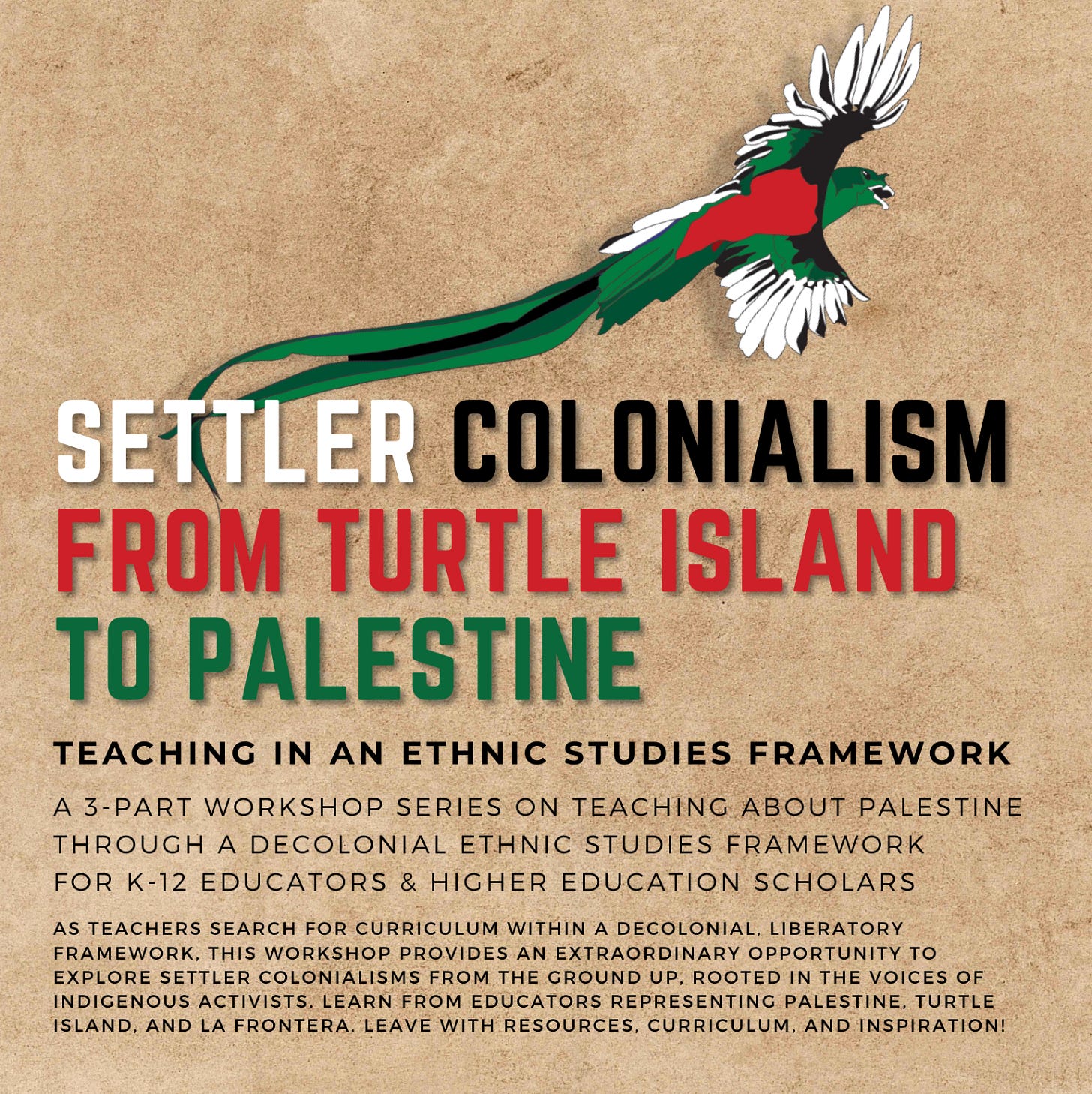What's Up with the Israelis?
Seattle's large Israeli community is a mystery to many local Jews. An Israeli-American sheds some light and imparts some lessons in this week's guest post.
Salad Course
This week, I’m pleased to share a guest post by Israeli-American engineer and talented writer, Erez Benari. But first.
→ Join me Tuesday evening for a conversation about the new edition of Family of Strangers, the only comprehensive history of Washington’s Jewish origins and communities, at Third Place Books/Muriel’s in Seward Park. I’ll be interviewing my friend Stuart Eskenazi, who literally wrote the most recent chapter of Jewish history for the Washington State Jewish Historical Society. Pre-order your dinner!
→ On that note, don’t miss Louis Keene’s piece on Storm point guard Sue Bird in the Forward. The tribute to the retiring legend weaves in the memories of several local Jewish young women who spent their middle school and high school years looking up to Bird.
→ Kvells to Samis for their sponsored article in the Seattle Times about the great things local day schools are up to.
→ Pic of the week: If you don’t know who Big Sonia is, check her out!
→ Lastly, I’d like to call your attention to the ethnic studies movement in Washington and its attempts to align Indigenous decolonization movements with Palestinian liberation. XITO, an organization that is part of the liberated ethnic studies network and informed the state’s ethnic studies framework, is leading a series of workshops on how to integrate Palestinian activism into ethnic studies this fall and into 2023.
The ethnic studies movement is increasingly committed to including Arab studies, which really means Palestinian activism. While of course Arab studies, including Palestinian history, could be taught in an ethnic studies context, the reality is that these activist organizations have an agenda that they’ve already made clear: the state of Israel is a colonialist oppressor, and Jews are conservative white people who control things. Ethnic studies is not really about education, but rather ideological alignment with trendy calls for decolonization.
XITO is the sibling organization of Acosta Educational Partnership, which trained Washington Ethnic Studies Now. All of these organizations have a growing presence here in Washington, working with public school districts and ethnic studies advocates. The “settler colonialism” workshop will be lead by XITO’s director, Anita Fernandez (pictured below in Thurston County).
I am following ongoing ethnic studies developments and hope to be able to report on them as they evolve.
Meat and Potatoes
Not a Strange Land
Erez Benari reflects on making America his home, why Israelis seem so mysterious, and how everyone can benefit from taking some social risks.
Not many know this, but for an Israeli, living in the Unites States is “the Israeli Dream” in a way.
Naturally, not for everyone, but for many thousands, it is the ultimate achievement to aspire to, and so it was for me. Naturally, it’s not that simple and so only a few thousands are able to do so (legally, that is). One such way is with the Diversity Visa Program, also known as “The Green Card Lottery,” in which I participated and won in 2007.
When I got word that I won, there was no one happier than I. This might seem stupid to the average American, but Israelis perceive America as the proverbial “land of milk and honey.” Many of us think most Americans are wealthy and happy, and think that if only we can go there, we too will be hobnobbing with the stars on Sunset Boulevard and spend our new life in fancy houses and driving fancy cars.
Now, in September 2022, I just completed my 14th year living in the Pacific Northwest, and naturally, I know these ideas are far from reality. While I myself have done OK here (nice car, yes, but no fancy house, and I’m certainly not having lunch with Tom Cruise anytime soon), my routine work with the LGBTQ community exposes me daily to many people who struggle to even afford a meal.
However, this story isn’t one of pessimism or a cautionary tale — quite the opposite. While I’m no Bill Gates, I still feel the United States is the most wonderful country to live in, whether you’re American, immigrant, Christian, Jewish, or something else. While I cannot say it’s perfect, and for many folks life is hard, I also feel truly privileged to be here. In all those years of living here, despite walking around with a very foreign-sounding name, I have never had to deal with any anti-Semitism or other form of racism. I’ve always been treated fairly and well by everyone. Friends, bosses, customers, business partners, and even random strangers (though to be fair, I’ve made quite an effort to blend in by adopting an American appearance and practicing both the language and American accent quite well).
In my interactions with the local Israeli community, I often see them struggle. Many of my fellow immigrants scramble to find solutions to daily things, from buying Israeli or Jewish products to handling local organizations that interfere with their religious practices (like setting important school events on holidays like Yom Kippur). On one hand, I feel for them and do my best to help, but on the other hand, I’m also critical of folks who have been here for quite a while and seem to make little to no effort in blending in. Many spend a lot of energy hunting for Israeli products in stores or online, consume little else than Israeli media, spend their time only with other Israeli immigrants, and many still struggle with English even after over a decade here.
Everyone has the right to spend their days hunting for the exact type of cheese they used to have for breakfast in Tel Aviv, or to prefer the company of other Hebrew speakers, but I also feel that over-focusing on these quests can distract people from “smelling the coffee.” America may not have the best shawarma, and some Americans do present “the Seattle Freeze,” but when one spends so much mental energy on their past, they risk losing sight of the big picture. And that big picture is that the US in general, and Seattle specifically, has so much to offer. One can quite literally eat at a different restaurant every day and never visit them all, because there are over 2,800, and hundreds of new ones open every year. Same goes for shows, sports, parties, and more. There are also so many wonderful and friendly people all around, and while a few folks might be colder, you might be surprised how delightful people can be if you reach out. I myself am nothing special, but I have built myself a massive network of friends, and I have not had a dull moment in years.
If you, dear reader, are an immigrant, try stepping out the door now and then and reach out. Invite someone for coffee or dinner, go watch a show. You might discover that just because you are a stranger doesn’t mean you need to be alone. And if you are local, try not to let the difficulties of life get to you. Sure, inflation is harsh right now, and we sometimes have to shuffle to make ends meet, but still, the kind of things we have around here are second to none, from the best food to some of the friendliest, smartest, and coolest human beings in the world.
Photo by James Emery/Wikimedia
Dessert
This Week Last Year
Community Announcements
Check out the Seattle Jewish community calendar and the virtual calendar.
This week’s parasha is Ki Teitzei.
Candlelighting in Seattle is at 7:15 p.m.
Shoutouts
Mazal Tov! Joseph Samuel Walls, son of Etan and Sarah Walls, grandson of Wendy Bensussen, Karen and Harold Feld and John Walls, will celebrate his Bar Mitzvah this Shabbat at The Young Israel of Great Neck.







This is the historical paradigm that challenges the settler-colonial paradigm. Ancient paintings document transmission of musical instruments from Europe and the Middle East to East Asia. This is the multiculturalism and cultural exchange being cancelled in a focus on settler-colonialism. https://www.youtube.com/watch?v=EvF305JY3Z0
Ethnic Studies - Since last spring, I have made requests for information to the LWSD, only to receive polite deflection. In July, I was finally informed of their website for filing an FOIA request, and I filed it. I still have not received one document about the plans for ethnic studies in LWSD. A school board member offered to look into this. I received an e-mail from an administrator offering to have an in-person 1:1 meeting. I replied that an in-person meeting can result in he-said, she-said, and I listed the media that constitute providing actual documents. After all of these months since October 2021, I still have *zero* information from LWSD on their curriculum.